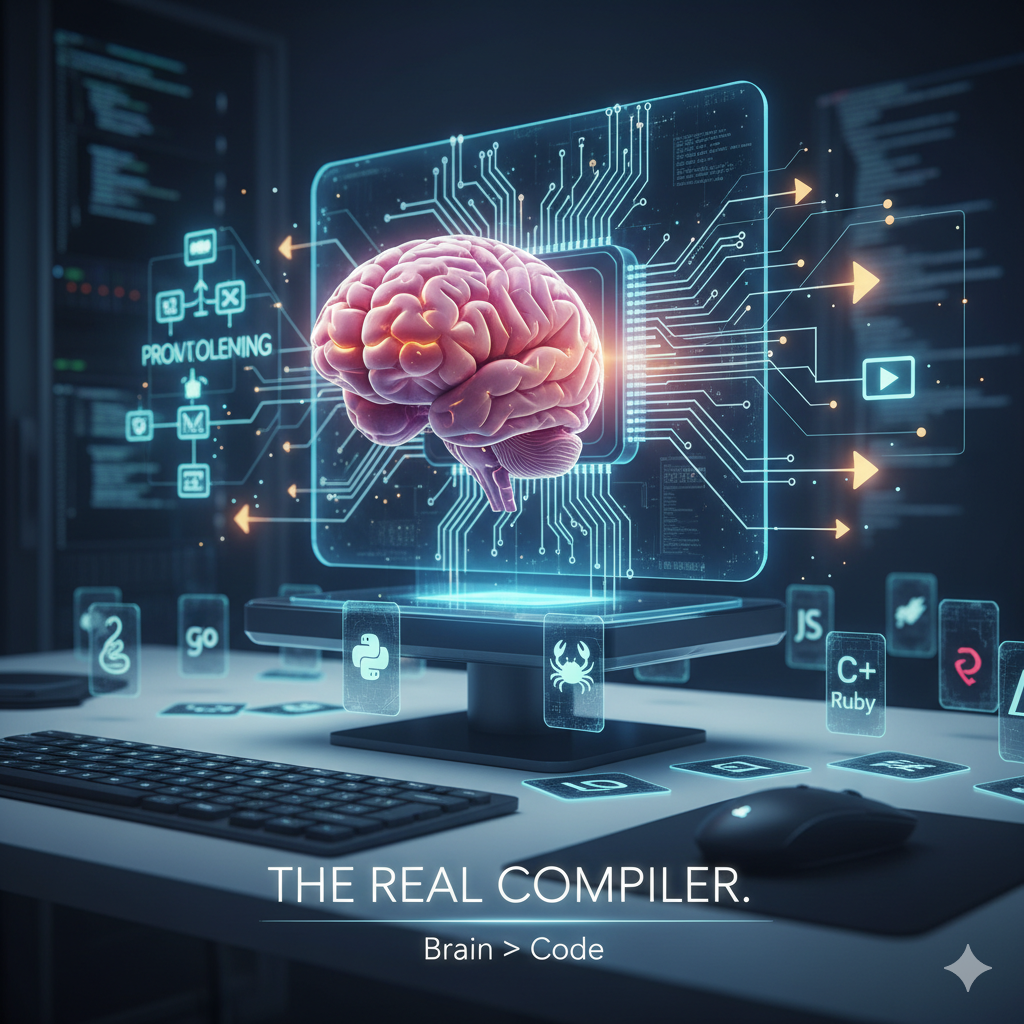A few years ago, I met a developer who proudly declared that he “knew” ten programming languages. He listed them like medals of honor — Python, Java, Go, Rust, C#, JavaScript, Kotlin, Swift, TypeScript, and even a bit of Haskell.
I was impressed. Until we started debugging a production issue together.
The bug?
A simple caching problem.
The fix?
Well… it took him three hours, five Stack Overflow tabs, and two cups of coffee.
That day, it hit me — knowing ten languages doesn’t make you a great engineer. Being able to solve problems does.
The Myth of the “Language Collector”
In our industry, it’s tempting to measure skill by how many technologies we’ve touched. We all know someone who’s always learning the next shiny thing — a new framework, a new syntax, a new paradigm. And there’s nothing wrong with curiosity. It’s actually one of the best traits a developer can have.
But sometimes we forget: tools are only as powerful as the hands that use them.

If you don’t understand how to break down a problem, how to think critically, and how to design a logical solution, then knowing multiple languages just means you can write confusing code in more ways than one.
Why Problem-Solving Is the Real Superpower
At its core, software engineering isn’t about typing code — it’s about thinking in systems. The computer only does what we tell it to. If what we tell it to do is wrong, no amount of syntax sugar will save us.
Here’s the reality:
Languages evolve. Frameworks come and go. But the ability to understand a problem, break it into smaller parts, and build a solution that actually works — that’s timeless.
Problem-solving teaches you how to think, not what to think.
It trains you to ask better questions:
- What’s really causing this issue?
- Is this a symptom or the root problem?
- Can I solve this in a simpler way?
When you focus on the “why” behind the issue, the “how” becomes much easier to figure out — no matter which language you’re writing in.
Every Great Engineer Is a Detective
If you’ve ever spent hours chasing down a mysterious bug, you know exactly what I mean. Debugging is less about coding and more about investigation. It’s about forming hypotheses, testing assumptions, and piecing together clues.
You don’t need to know every syntax rule in Go to spot that your logic in Python doesn’t handle edge cases. You need pattern recognition. You need curiosity. You need persistence.
Some of the best engineers I’ve met aren’t the ones who can code the fastest — they’re the ones who can stay calm when everything breaks, ask the right questions, and slowly untangle the mess.
Languages Are Just Dialects of Logic
Once you really “get” problem-solving, learning new languages becomes almost trivial. It’s like learning new dialects once you already speak the language of logic.
You realize that loops, conditionals, and abstractions are just different ways of expressing the same thought:
“How do I get from point A to point B efficiently?”
Knowing Java won’t help if you can’t design a good algorithm. Writing Python won’t save you if you don’t understand data flow. Mastering React won’t fix your API design.
Languages are tools. Problem-solving is craftsmanship.
How to Get Better at Problem-Solving
If you want to grow as an engineer, spend less time memorizing syntax and more time thinking deeply about problems. Here’s what actually helps:
- Practice analytical thinking.
Before jumping into code, pause. Define the problem clearly. Ask “what am I really trying to achieve?” - Solve small problems daily.
Not just LeetCode ones — real-life ones. Automate a repetitive task, write a script to clean up files, optimize your workflow. - Read other people’s code.
It’s like reading someone’s thought process. You learn patterns, tradeoffs, and reasoning. - Reflect after you fix something.
Ask yourself what led to the bug, what you learned, and how you can prevent it next time. - Collaborate and discuss.
Watch how other engineers approach the same issue. You’ll realize there’s rarely one “correct” solution — just different perspectives.
Final Thoughts
In a world obsessed with frameworks and languages, the best engineers stand out not because they know everything — but because they know how to think through anything.
You can learn a new syntax in a week. But developing a problem-solving mindset takes experience, patience, and curiosity.
So the next time someone asks you what languages you know, maybe smile and say:
“Enough to solve problems.”
Because at the end of the day, that’s what engineering really is — solving problems creatively, one logical step at a time.
Leave a Reply